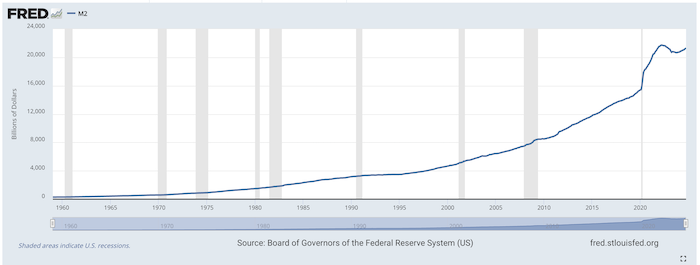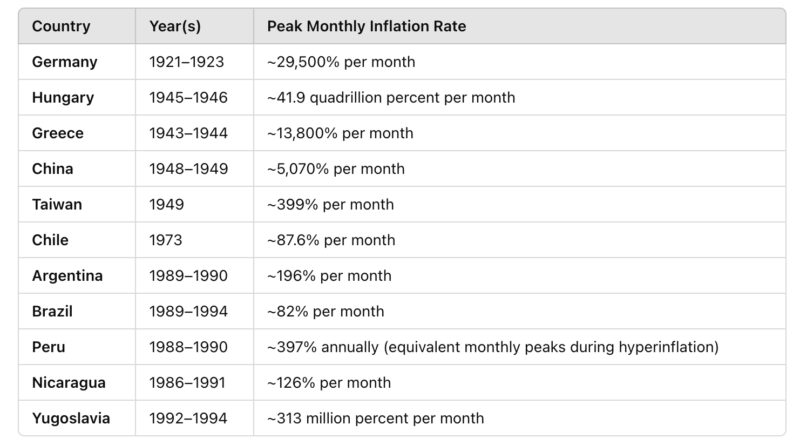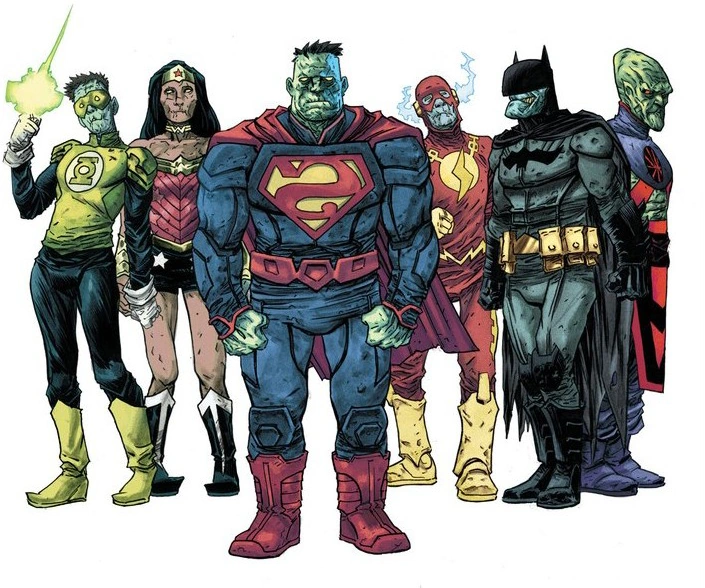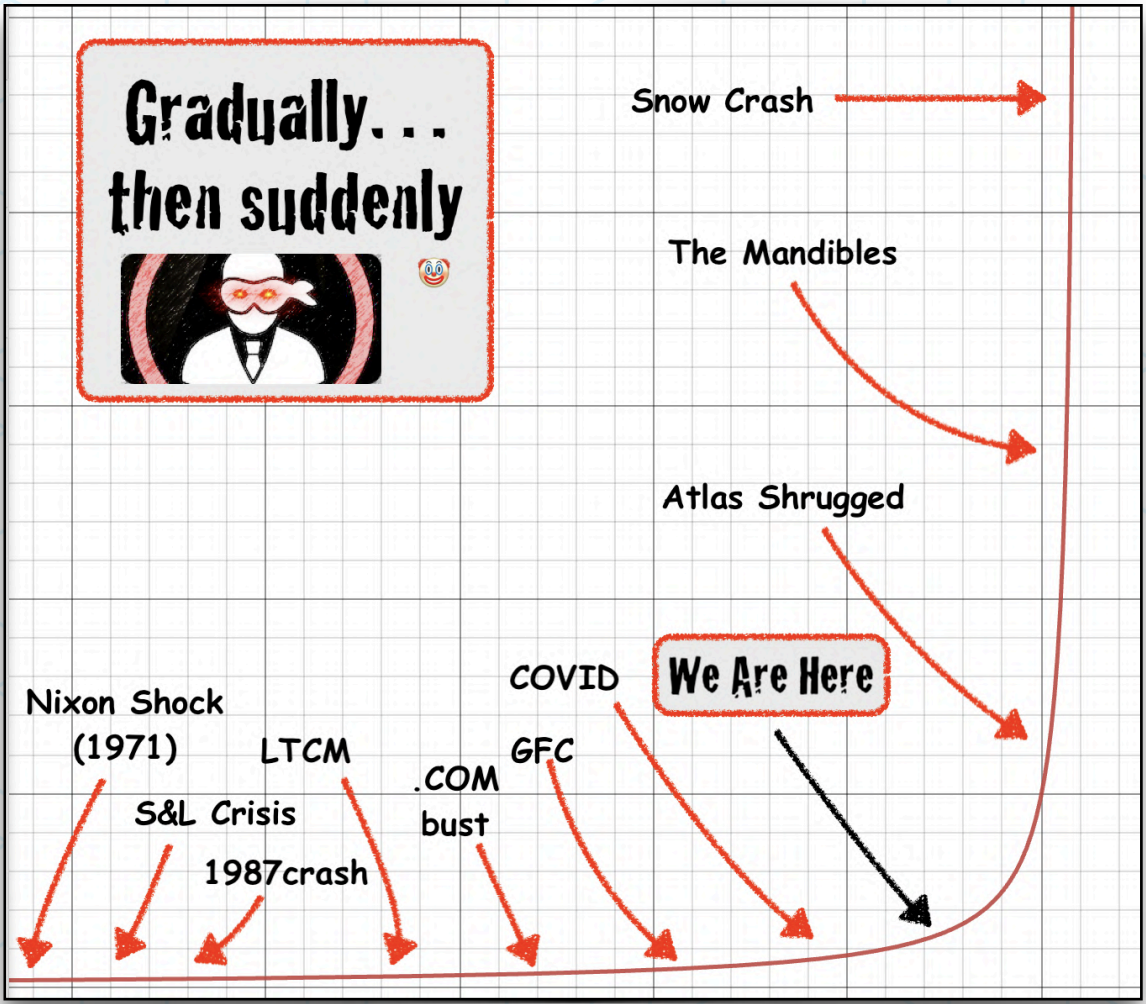When Future Shock Meets Mass Formation Psychosis
In 1970, futurists Alvin and Heidi Toffler released the first of three seminal books about the trajectory that America, and the world was on. They published them at roughly decade intervals: Future Shock (1970), Power Shift, (1984), and Third Wave (1991). There were others (like War & Anti-War and Revolutionary Wealth), but those three laid out what was coming down the pipe and they were largely correct about it because their core premise was so simple:
The rate of change was accelerating.
That was it. But it affected everything. The ramifications went beyond cycle theory or long waves because it meant that cycles and long waves would themselves accelerate.
As this acceleration accelerated, it would begin to overwhelm the coping mechanisms of both individuals and institutions alike. Nobody would be exempt, and everybody was facing a kind of technological and cultural shell shock, which they called: Future Shock:
It is impossible to produce future shock in large numbers of individuals without affecting the rationality of the society as a whole. Today, according to Daniel P. Moynihan, the chief White House advisor on urban affairs, the United States “exhibits the qualities of an individual going through a nervous breakdown.” For the cumulative impact of sensory, cognitive or decisional overstimulation, not to mention the physical effects of neural or endocrine overload, creates sickness in our midst.
Of course, the “today” in the above passage was in 1970.
The Tofflers probably underestimated how bang-on they were, and the pace of change we’re experiencing just over the past few years (since “The Jackpot” event of 2020) probably would have dazzled both of them (Alvin passed away in 2016 and his wife Heidi in 2019).
I have long ascribed the kind of rampant “mass formation psychosis” (to use the Dr. Robert Malone term) to one thing above all else: Future Shock.
Most of the ridiculous bullshit people believe today
… and nearly all the policy blunders that are so catastrophically stupid as to appear to be intentional conspiracy
– are pure and simple Future Shock.
Go back and read the entire series.
Then you’ll get what’s actually… pic.twitter.com/9xGmhtnJJk
— Mark Jeftovic, The ₿itcoin Capitalist (@StuntPope) June 18, 2024
While the Tofflers exhaustively explored the coming breakdown of our prevailing systems of government, education, military and business, there a few additional catalysts at play today – since the Jackpot – which are converging, and adding even more instability and disruption to the future shock.
I can think of three:
#1) We’re in a Crack-Up Boom
The first Future Shock book dropped right on the cusp of the Fiat Era. Less than a year later, the Nixon Shock would rug-pull the concept of “money”, and set in motion yet another accelerant: compounding debt and money creation.

Take all the cognitive dissonance and social breakdown that the Tofflers said future shock would cause, and add to that a doom-loop of money-printing and Cantillon Effect (if you don’t know what that is, just think of it in terms of accelerating wealth inequality).
All fiat currencies throughout history have gone to zero, no exceptions and as they approach their final glide path, society starts to experience the effects through ever accelerating inflation (sound familiar?)
There have been close to a dozen hyperinflations over the course of the 20th century, and there have already been a few in the 21st (the Venezuela and Zimbabwe) and a couple that have been teetering on the precipice (Argentina still struggling with 104% inflation in 2024, Turkey, Nigeria).

Usually when this occurs, it’s isolated to a single currency and there at least theoretically exists the option for capital flight into other currencies.
But owing to the global debt super-bubble, and rampant money creation of the fiat era, which accelerated through The Jackpot (Covid), high inflation is now happening pretty well everywhere (the only country I note that is experiencing deflation right now is Afghanistan).
Most significantly, the currency experiencing inflation (albeit officially “under control”) is the US dollar, the global reserve currency.
For months in The Bitcoin Capitalist (since that 50bps cut in September), we’ve been tracking how the Fed has lost control of the yield curve, and this portends a massive crisis regardless of what the official CPI is.
This is also why whenever we see something like a memecoin rocket from zero to stratospheric valuations, we don’t think of it in terms of a crypto bubble, we rather suspect what the Austrian School economists called “Katastrophenhausse” – literally “Catastrophic boom” or “Crack-up Boom“.
Tell me we’re in a “crack-up boom” without using the phrase “crack-up boom”… pic.twitter.com/5P1DF7mvQj
— Mark Jeftovic, The ₿itcoin Capitalist (@StuntPope) January 18, 2025
When a currency is in a real hyper-inflation territory, the crack-up boom becomes a flight to safety of “anything but“ the currency, which is in the process of disintegrating (see: It’s the Denominator, Stupid“)
We aren’t there yet. We may be a few years away from that – and so the pile-in to these memecoins isn’t about the preservation of purchasing power. But I suspect it is about financial nihilism: and the realization the the current system is doomed; that the path for “getting ahead” lies in being early on crazy moonshots and only needing to be right once.
The Tofflers never talked about how a global hyperinflationary event would effect their thesis. I can fill in the blanks: it’s like pouring accelerant on it.
#2) The Singularity Has Already Happened
The Tofflers never came out and said that the accelerating pace of change would result in humanity evolving into something else entirely; just that the effect of this ever quickening change would have profound effects on the collective psyche.
The pronouncement that it would result in an evolutionary quantum leap would be made by others, in later decades. “We will merge with machines”, was the overall theme. We will upload our consciousness into the cloud. We will transcend our physicality, we will experience a “post-biological” existence. We could even become …immortal.
What would make all this possible is the virtuous cycle created by digital computer networks, powered by Moore’s Law, incessantly halving their physical footprint while doubling their processing power – eventually we would achieve, and then surpass, the interconnectivity and the processing power of the human brain itself.
When that happened, all bets were off.
The assumption is that somewhere along this continuum, when the right thresholds of parallelism and power were surpassed, “mind” itself would leap out of the process – emerging with a vengeance and folding back in on itself, forking off subprocesses even more intelligent than itself, and so on, ad infinitum.
“Our final invention” will then survey the world, with all its deficiencies and inefficiencies, and being infinitely smarter than all human minds combined, will deftly solve everything.
At that point there will be little left for us clunky, slow-witted humans to do.
We can then retire into a life of leisure, experiencing anything existence has to offer courtesy of the super-intelligent beings we had engineered into existence. We can even shed our mortal coils and experience it all from within the safety and comfort of an artificial computer generated construct. Our own personal, chrooted universes where we could experience anything our minds desired.
The likes of Ray Kurzweil and Peter Diamondis posit this oncoming event as “The Singularity”. Kurzweil (who turns 77 next month) thinks it’ll happen by 2045, and reputedly guzzles about 300 capsules per day of various nutrients and supplements in a bid to keep his mortal coil alive long enough to make the leap into immortality.
There are various problems with this scenario, in fact back before Covid (“The Jackpot event“), I started writing a book about it which has since languished on the back-burner (my focus over 2025 will be to finish the CBDC Survival Guide).
As a general rule, things never play out along the lines of the best forecasts. I’ve written about this before, and borrowed the term recipriversexclusion from the Hitchhikers’ Guide to the Galaxy to describe it. In the Douglas Adams book, it meant a number whose value could be anything but itself (i.e “The given hour for a dinner party is the one moment in time that it is impossible for any of the guests to arrive”).
In our context, it’s that consensus estimates and expert forecasts describe the single timeline that is impossible to occur.
I’ll go one further. I think that we are already in the post-singularity era. Right now.
It happened within the last couple years with the AI wave – of third major technological wave of this century (internet, crypto, now AI) and the eighth major technological leap since the industrial revolution (electricity, radio/TV, telephones, semi-conductors, personal computers).
Now we’re past the point where the code is coding. The feedback loop there is already underway, and it too is accelerating…
I’m not sure people understand how important this is:
Goldman Sachs CEO says that AI can draft 95% of an IPO prospectus “in minutes.”
White collar jobs will go first…. and fast. pic.twitter.com/ZWbMEGIhhs
— John LeFevre (@JohnLeFevre) January 17, 2025
#3) We’re in a bizarro-verse alternate reality

We crossed into it on July 13, 2024.
At that moment, our entire reality phase-shifted into another timeline. This happens constantly (JFK assassination, 9/11), but sometimes, the most monumental shifts are the result of almost accidental “hinge moments” (there’s an excellent book by that name that lays out a few of them over the past thousand years).
Hanging chads in 2000 US election. Trump turning his head to point toward a chart at a key moment…
We’re in a completely different timeline now.
…and it’s accelerating.
Not very many people get that.
Sound on. 🔉🔊 pic.twitter.com/7Z2me11dED
— Mark Jeftovic, The ₿itcoin Capitalist (@StuntPope) November 10, 2024
(That’s a Bill McClintock mash-up, btw, be sure you crank it loud)
So now, we’re in an ever-accelerating technology loop, amidst an Austrian School Crack-Up Boom, taking place within the early innings of a global hyper-inflationary event, in the early days after the technological Singularity.
And, we’ve flipped timelines, into what looks like some kind of bizarro-verse.

At least that’s what it feels like.
This is one of the symptoms of Future Shock.
And the craazy thing is, we’re aren’t even in the parabolic acceleration phase yet. We’re still just rounding the corner, in the inflection point:

So What Does “Frazzledrip” Mean?
Anything you relied upon for stability and predictability in the past is over. Governments are near-comedic basket cases, healthcare under nearly every system is a disaster, educational systems near-catatonic. Businesses are moving with the times, some with aplomb, some bomb.
But the most visible casualty of them all is the real-time self-destruction of the corporate, state-approved media complex.
How information travels between nodes has shifted from broadcast to interlocking networks (neural nets) and this will never revert back.
Today we get higher signal news, and faster, on X, than we do from the MSM – the latter of which gets to “breaking news” hours or even days after the fact; and only then after it gets pureed through an intersectional sieve of agitprop.

But the flip side is that in this super-conductive neural net of unrestrained signal, a lot of truly unhinged stuff gains traction.
In the past, we had a centrally organized information publishing ecosystem: news, publications, broadcast, and they all had editorial processes and filters that, for awhile, almost looked objective and neutral – focusing more on “getting it right” than punditry.
That all went by the wayside over the past decades, especially since the twin populist crimes of 2016: Brexit, and the first Trump election. That was when it became clear that the gatekeepers were now curating informational pathways that most people were in the process of abandoning.
In the emergent system – the decentralized, internet system, there is no effective way to manage or control “misinformation” or “disinformation”. In fact, after reading countless NGO and policy papers on the topic, I rarely see one that can even offer a clear definition of what those terms mean.
So we’re all stuck trying to cope with sensory overload – note that I didn’t say information overload, because a lot of it isn’t information – a lot of it is conjecture, conspiracy and shared neurosis.
My catch-all phrase for everything that seems crazy and unprovable is “Frazzledrip”, which is the name of my bookmarks folder where I keep all my clippings that fit in this bucket…

Frazzledrip is my preferred term to “conspiracy theory” (because there are a lot of real conspiracies):
- Directed energy weapons caused fires so that oligarchs could buy property cheap
- Michelle Obama and Brigette Marcon are dudes
- Flat Earth “truthers”
Basically the common theme among Frazzledrips is that everything that happens anywhere is the result of a carefully calculated cabal that rules the world and is intentionally destroying civilization to serve their own ends.

Before you get mad at me because you suspect I don’t subscribe to one of your personal Frazzledrips, we have to acknowledge that:
- Powerful groups do conspire to protect their own power, increase their wealth and wield outsize influence.
- There really is a lot of crazy, unhinged stuff actually happening.
The reality is, those powerful groups conspiring to their own ends are not a monolith, they are factions, and those factions are fractal. There is not only no consensus between these groups, aside from temporary, ever-shifting alignments of interest – there is active conflict between them. Possibly to the point where geopolitical events of the day are more likely the result of internecine factional conflicts than between identifiable sovereigns.
Even still, none of them are in control – let alone one of them, or even all of them: we live in an out of control world, and for many – that is a more terrifying prospect than the possibility that we live in a dystopian caste-based society, lorded over by an insular class of dynastic, elites (who are really shape-shifting lizards).

The reason people are prone to believe these narratives is because, in a weird way, they provide some semblance of structure, some kind of mental model that can explain the high weirdness (not to mention institutionalized incompetence) which typifies our day-to-day existence.
But the reason we live in a world of high weirdness and incompetence, is (you guessed it) Future Shock.
Just to make it even harder to parse reality – it turns out there are heterodox narratives which really do have a higher probability of being accurate (like the Covid lab-leak, Epstein didn’t kill himself, or even 9/11 was an inside job), but are less likely to be widely believed than your typical “Frazzledrip”.
What’s To Be Done
The bitterest pill to swallow coming out of Covid, even after being a Libertarian and aspiring Sovereign Individual for most of my adult life, was the realization of just how on our own, each of us are.
Most normies live their entire lives under this assumption that “the system mostly works”, along with its support structures, governance models and information apparatus.
People like you and me had an awareness that this wasn’t as guaranteed as most others thought, and that we were on a path where this would become less reliable over time.
With Covid it seemed like complete institutional breakdown: our governments became openly tyrannical and the media complex went full brainwashing mode, while the healthcare system imploded. Suddenly, we, as individuals were tasked with shouldering a level of personal responsibility unlike anything we had ever faced before – it was one thing to lean toward self-reliance in the Beforetimes. Now we not only had to fill the vacuum left by a dysfunctional system, that system was openly hostile toward us.
Add to that, yet another technological revolution with AI blowing wide open and posing its own unique existential threat to anything that was still left intact.
I would submit that this actually isn’t the time for radical self-reliance, you just have to be a lot more thoughtful about what and on whom you rely on.
This is probably a major contributor to why the Bitcoin culture has taken such hold. As a zeitgeist (Bitcoin is it’s own kind of morphic field, very distinct from “crypto”) – In addition to providing something an immutable: a globally dispersed ledger secured by Proof-of-Work, Bitcoin places heavy emphasis on personal fitness, contemplative practices (mindfulness, meditation) and family; which overflows into a kind of tribalism that I predict will come to define this era.
We also have to train ourselves to think more in terms of probabilities than binary true or false – if only because the truth is practically impossible for any of us to know when it comes to events and matters outside our own immediate frame of reference. Especially with AI, deepfakes, and botnets.
Finally, we have to focus on our own internal states and own personal goals – if we’re not examining all this wild mayhem happening around us through the lens of how it impacts (or even empowers) our ability to pursue our own goals, then we’re just a pinball being batted around everybody else’s machine.
(Last year I soft-launched an email list focusing on this called Sovereign Mind, which I’m going to get into gear in 2025).
Events are accelerating so fast, we have moved well beyond Hanlon’s Razor (“Never attribute to malice that which is adequately explained by stupidity.”) I don’t actually believe politicians, central bankers, technocrats or pundits are stupid.
But they are all, as a group, collectively out of their depth and completely tone-deaf. They’re trying to function in a 3D world that’s in the process of turning into a hypercube.

They keep insisting on trying to apply Cartesian boundaries and frameworks on to a place that has been undergoing a rather disorderly phase shift into another dimension.
(That dimension, was the advent of cyberspace, and I’ll have more to say about this transition from our 3D to a hypercubic world in the next piece. Subscribe here to get it when it drops).
We’ll close with a final warning from the Tofflers:
“Social rationality presupposes individual rationality, and this, in turn, depends not only on certain biological equipment, but on continuity, order and regularity in the environment.
It is premised on some correlation between the pace and complexity of change and man’s decisional capacities.
By blindly stepping up the rate of change, the level of novelty, and the extent of choice, we are thoughtlessly tampering with these environmental preconditions of rationality. We are condemning countless millions to future shock.”
Fast forward 50 years, and we’re soaking in it.
The Bitcoin Capitalist Letter, my premium newsletter that covers Bitcoin, crypto stocks and the digital asset space. You can catch a trial deal here »
Sign up for the Bombthrower mailing list and get a free copy of the Crypto Capitalist Manifesto here »
Follow me on Twitter here or Nostr: npub1elwpzsul8d9k4tgxqdjuzxp0wa94ysr4zu9xeudrcxe2h3sazqkq5mehan



Delicious article, as usual.
From GROK:
The phrase "mass formation psychosis" gained significant attention following its use by Dr. Robert Malone on the Joe Rogan podcast in December 2021. However, the concept behind it, referred to by various terms like "mass formation" or "mass hypnosis," has roots in earlier psychological and sociological literature. The specific term "mass formation psychosis" does not appear in academic literature prior to Malone's discussion but was derived from the idea of "mass formation" discussed by Mattias Desmet, a professor of clinical psychology at Ghent University, Belgium, who has been exploring this concept in relation to societal conditions leading to collective behavior. Desmet's work and the term "mass formation" have been discussed in various contexts since at least 2021, but the exact term "mass formation psychosis" as popularized by Malone seems to be a more recent amalgamation aimed at describing a perceived societal phenomenon during the COVID-19 pandemic.
hi
Very insightful work, as per Mark's usual standard of excellence. Ironically naysayers have long condemned BTC for its "nothingness" (no product/service, no earnings, no financial statements, no regulatory oversight, etc.) yet it may turn out to be the perfect asset to store and preserve wealth in an increasingly frazzled, chaotic world.
Your intellect is dazzling. As I sit here in la la land reading this it dawns on me that you are in the eye of the storm, and that the body and soul of your article describes an American cultural phenomenon. I have no doubt that as American cultural imperialism is applied globally, and to a huge extent in la la land, we should sit up and pay attention as it is all coming our way. Sadly we won't until it's too late.
Mass formation Psychosis is complete bull, writer, so is Malone, so was Desmet, whom Malone stole the concept from apparently. Everything you write and attribute to those false narratives is questionable. The premise is understood, but people can certainly opt out of most of technology, yet they don’t. It’s not mass formation just human nature to be so naive and easy to use.
I'm stunned. Your article is one of the most articulate and incisive articles I've read. Luckily, ZeroHedge reprinted your article where I encountered it.
My thoughts differ in one aspect. I have said for several years that factions are at play in the world so my sentiments accord with yours. My feeling is that they do, indeed, fight one another. As one faction "wins," their agenda is advanced. However. The overall philosophy or overriding spiritual gestalt abides. That gestalt luxuriates in conflict testing strength and dominance. "Might makes right" might well be their slogan. "Dominance" is a force multiplier which narrowly constructs a window defined within inherent parameters of that force or their own "quantum-like field." This window is revealed in mundane reality as humans augmenting with AI and thirsting after flavors of immortality.
What do you make of the current attempt by DOGE, Musk, Trump to save the sinking ship with austerity (that isn't what they are calling it but that's what it is)?
I've been operating under the assumption that since at least 2000 every politician, bureaucrat and lobbyist has known the US debt is never getting paid off and so instead has made it their personal mission to embezzle as much government money as possible.
Global War on Terror, Climate Change, COVID, WOKE/ESG/DEI they are all just scams sold to the dumb tax payers to scare them into parting with their hard earned cash.
The DC establishment seems to be in shock like "what is he doing, doesn't he know the titanic is sinking and everyone here is stealing whatever they can before the music stops?"
Lets be optimistic and suppose they are successful in stopping the hemorrhage, how long will it be before another "jackpot" comes along and undoes their attempt?
P.S – I know your a Canadian!